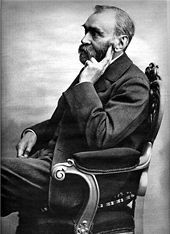Some good news from lambert @ Corrente–
Ministers miss 2013 deadline for US-led trade pact
By Martin Abbugao, AFP
5 hours ago
Barack Obama has hailed the TPP as a centrepiece of renewed US engagement in Asia, saying it contains market-opening commitments that go well beyond those in other free-trade accords.
The TPP talks also cover areas not included in other pacts, such as the environment and labour standards.
But the complexity of the issues already caused negotiators to miss the original 2012 deadline set by Obama to reach a deal.
They have been divided on a number of issues, including opening up Japan’s auto and farm markets, government procurement and limiting the role of state-owned enterprises — said by some countries to distort competition.
Patent issues — in particular on medicines — have also been a sticking point.
…
(G)roups like humanitarian organisation Medecins Sans Frontieres (Doctors Without Borders) say such patent protection would restrict access to cheaper generic drugs for millions of poor people.
US Fails To Close TPP Deal As Wikileaks Exposes Discord
Emma Woollacott, Forbes
12/10/2013 @ 9:28AM
The announcement comes as Wikileaks releases an internal memo and spreadsheet, revealing that the US is putting heavy pressure on other nations to conform with its demands.
…
The statement coincides with the release of two more documents from Wikileaks which reveal just how far apart the US is from the other nations involved in the treaty, with 19 points of disagreement in the area of intellectual property alone. One of the documents speaks of “great pressure” being applied by the US.
Australia in particular is standing firm, objecting to the US’ proposals for copyright protection, parallel importation proposals and criminalization of copyright infringement. It’s also opposed to a measure supported by all the other nations involved to limit the liability of ISPs for copyright infringement by their users. Japan, too – which only joined the talks in March – has vowed to protect its agricultural markets, which the US wishes to see opened up.
But the TPP is causing increasing disquiet in the US, as well as around the world. Over the weekend, campaign group Knowledge Ecology International (KEI) revealed that Nobel prize-winning economist Joseph Stiglitz of the Columbia University School of Business has written to the negotiators, calling on them to resist a tranche of measures that he says would weaken the 2001 Doha Declaration on TRIPS and Public Health.
These include extending patent terms and lowering the threshold for patentability of medicines, making surgical procedures patentable and mandating monopolies of 12 years on test data for biologic drugs. He also objects to the granting of compulsory licenses on patents, increasing damages for patent and copyright infringement, placing lower limits on injunctions, narrowing copyright exceptions and extending copyright protection to life plus 70 years.
“The TPP proposes to freeze into a binding trade agreement many of the worst features of the worst laws in the TPP countries, making needed reforms extremely difficult if not impossible,” he writes.
(Note: link to the Stiglitz letter added.)
Countries Remain Opposed to Some of More Extreme US Proposals in TPP Negotiations, According to WikiLeaks
By: Kevin Gosztola, Firedog Lake
Monday December 9, 2013 6:50 pm
“It should be mentioned that the US is exerting great pressure to close as many issues as possible this week,” the document reads. “[U.S. Chief] met with all twelve countries and said that they were not progressing according to plan.”
…
Large differences on how to handle “intellectual property” persisted and introduced “serious doubts” as to what would happen in Singapore.
Discussions on the environment went nowhere because the countries could not agree on the definition of “environmental law.”
On financial services, “positions” were “still paralyzed.” The US showed “zero flexibility.” And, as for the issue of agricultural export subsidies, “all TPP countries except the US are committed to eliminating them.
…
The US has been and remains the only country to support its own proposal to establish criminal offenses for “unintentional infringements of copyright, related rights and trademarks.”
All countries, after Salt Lake City, oppose the United States’ current proposals or positions on pharmaceuticals.
 Bureau of Labor Statistics
Bureau of Labor Statistics
 On this day in 1901,
On this day in 1901, 
Recent Comments